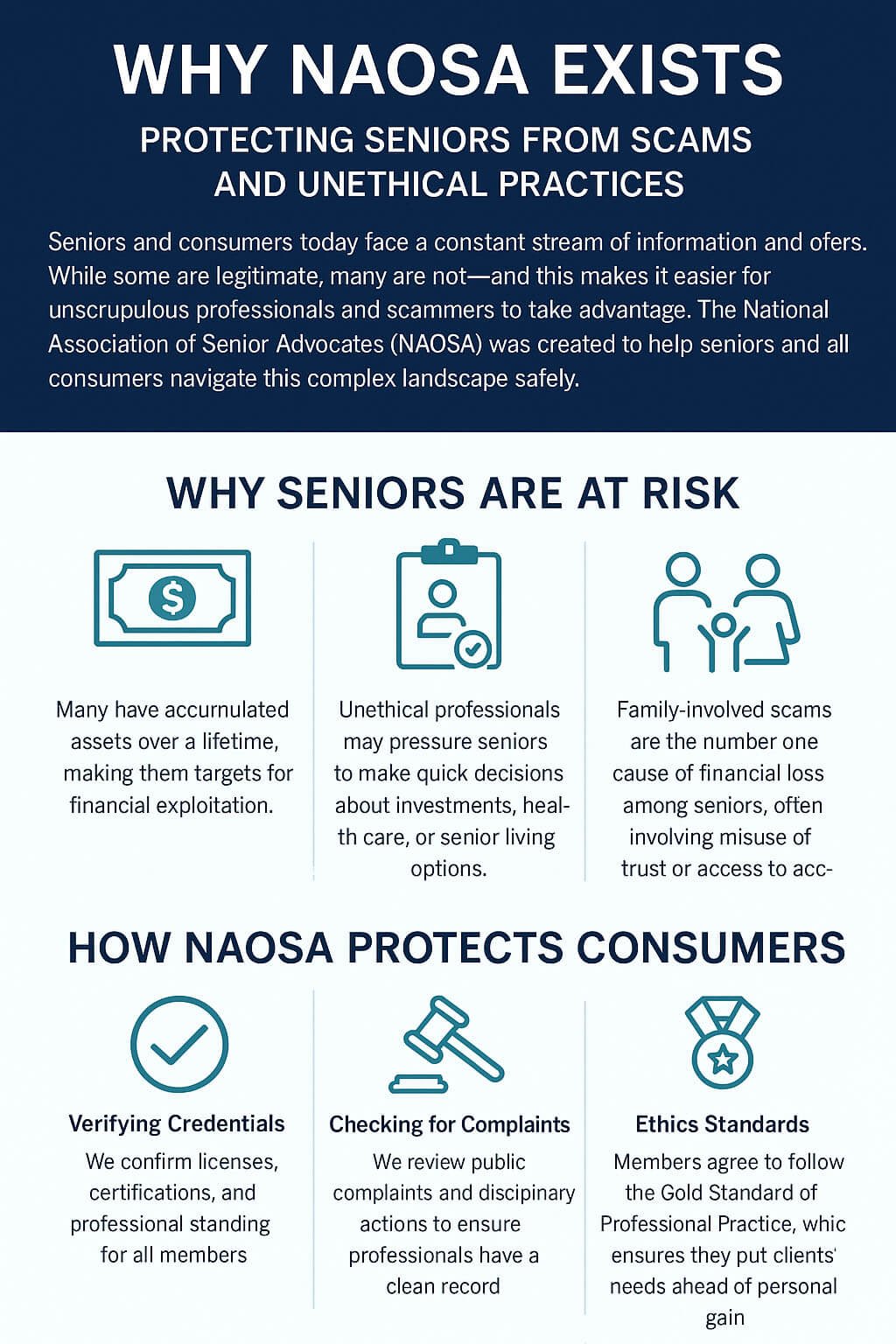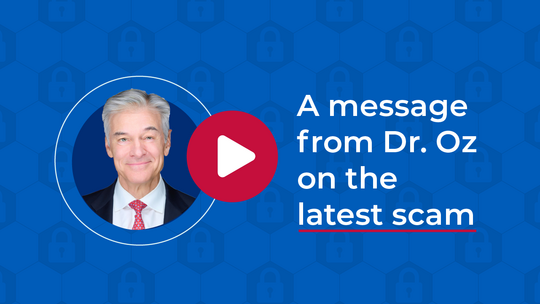
Seniors and consumers today face a constant stream of information and offers. While some are legitimate, many are not—and this makes it easier for unscrupulous professionals and scammers to take advantage. The National Association of Senior Advocates (NAOSA) was created to help seniors and all consumers navigate this complex landscape safely.
Why Seniors Are at Risk
Seniors are particularly vulnerable to scams for several reasons:
- Many have accumulated assets over a lifetime, making them targets for financial exploitation.
- Unethical professionals may pressure seniors to make quick decisions about investments, health care, or senior living options.
- Family-involved scams are the number one cause of financial loss among seniors, often involving misuse of trust or access to accounts.
How NAOSA Protects Consumers
NAOSA’s mission is to promote ethical business practices and connect consumers with professionals who have been thoroughly vetted. Key ways we do this include:
- Verifying Credentials: We confirm licenses, certifications, and professional standing for all members.
- Checking for Complaints: We review public complaints and disciplinary actions to ensure professionals have a clean record.
- Ethics Standards: Members agree to follow the Gold Standard of Professional Practice, which ensures they put clients’ needs ahead of personal gain.
- Nationwide Reach: With vetted professionals in 30 states, seniors and consumers can find trustworthy help wherever they live.
By relying on NAOSA, seniors can reduce their risk of falling victim to scams and make informed decisions about professionals who handle their finances, health, or care.
To start protecting yourself today, explore NAOSA’s consumer guides for practical advice on spotting scams and choosing ethical professionals.













